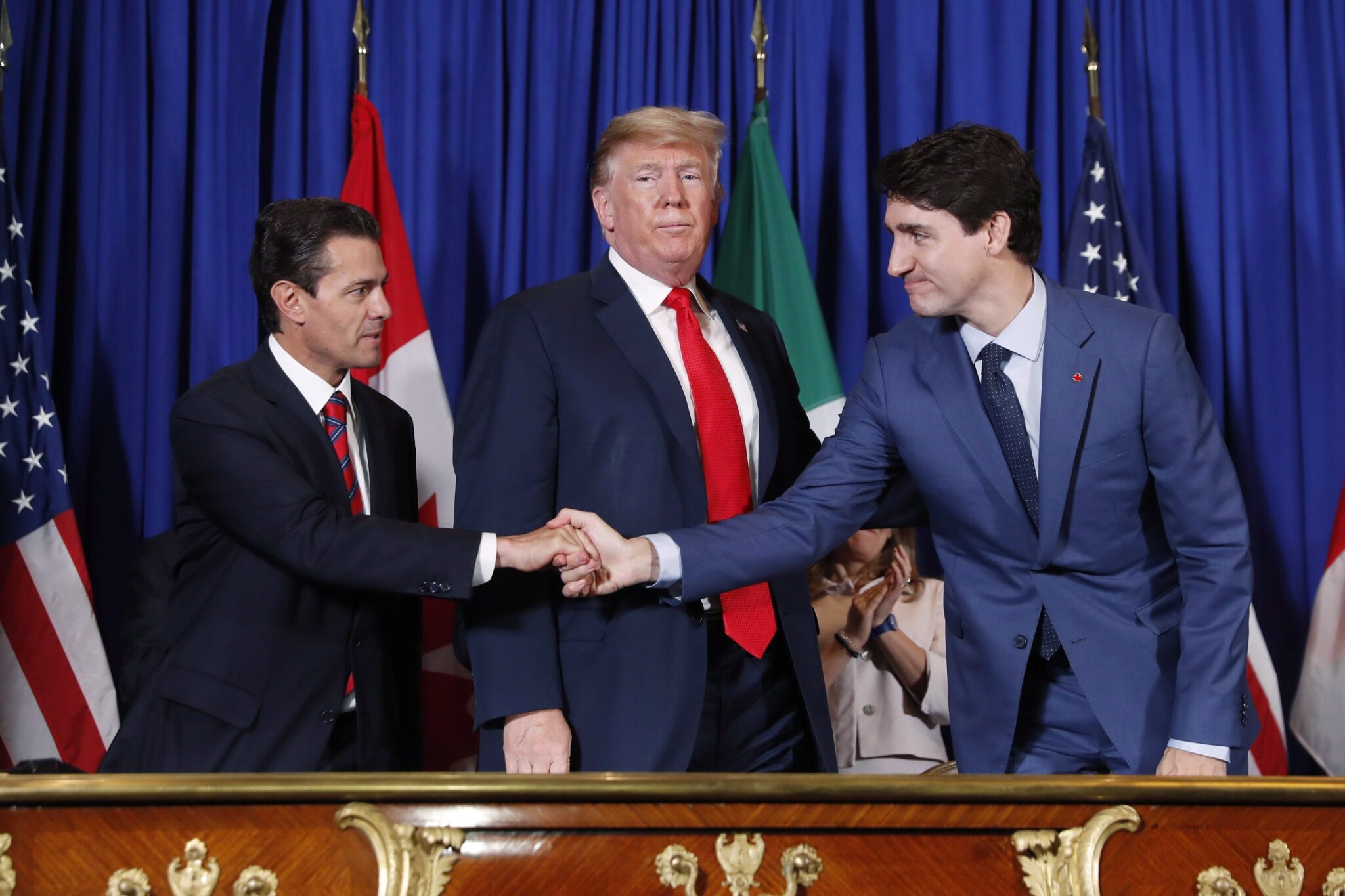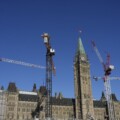Yesterday evening, President-elect Donald Trump announced on Truth Social that one of his first executive orders after taking office on January 20th would be to impose a whopping 25 percent tariffs on all goods entering the United States from Canada and Mexico.
Trump threatens a 25% tariff on Mexico and Canada on Jan 20 unless… some hard-to-measure steps get taken at the border.
— Alexander Panetta (@Alex_Panetta) November 25, 2024
Look forward to seeing the Canadian dollar and Mexican peso’s reaction tomorrow. pic.twitter.com/faLfwzg18Z
Trump said the proposed tariffs are the consequence of high levels of illegal migration and fentanyl trade into his country—a reaction to what he called the United States’ “open border” policies with Canada and Mexico.
“Both Mexico and Canada have the absolute right and power to easily solve this long-simmering problem. We hereby demand that they use this power, and until such time that they do, it is time for them to pay a very big price!” said Trump.
Last night, the CBC reported there was a call between Prime Minister Justin Trudeau and President Trump. There has also been a flurry of calls between the prime minister and the premiers of Ontario and Quebec. An emergency meeting has been scheduled. The Mexican president is planning to respond with her concerns, asserting that the U.S. president-elect’s accusations towards their border security were unfounded, and in fact contrary to the thinning number of migrants arriving in the U.S. through Mexico from South America.
Trump’s moves could trigger a trade war and, as Hub contributor Trevor Tombe notes, could mean an annual 2.6 percent reduction in real GDP, sending this country into a recession. The threatened tariffs could also violate the terms of the Canada-United States-Mexico Agreement (CUSMA).
Here are five Tweets from Canadians responding to Trump’s major announcement.
In Ottawa, Deputy Prime Minister and Finance Minister Chrystia Freeland and Public Safety, Democratic Institutions and Intergovernmental Affairs Minister Dominic LeBlanc issued a statement emphasizing the major economic numbers behind the Canada-U.S relationship, stating that, “Canada buys more from the United States than China, Japan, France, and the UK combined.”
The deputy prime minister later noted that while U.S. border guards encountered some 2.5 million people coming from Mexico into the U.S. last year, only 10,171 people crossed from Canada into the U.S.
Read the joint statement from @cafreeland and me:
— Dominic LeBlanc (@DLeBlancNB) November 26, 2024
//
Lisez la déclaration conjointe de @cafreeland et moi: pic.twitter.com/g9unlJrOEe
Ontario Premier Doug Ford led provincial leaders’ response to the proposed tariffs. It’s “like a family member stabbing you right in the heart,” Ford told reporters outside of the Ontario legislature today.
A 25 per cent tariff would be devastating to workers and jobs in both Canada and the U.S.
— Doug Ford (@fordnation) November 26, 2024
The federal government needs to take the situation at our border seriously. We need a Team Canada approach and response—and we need it now. Prime Minister Trudeau must call an urgent…
Quebec Premier François Legault stressed that the integrity of Canada’s border must be a priority and that everything must be done to avoid the tariffs.
Federal Conservative leader Pierre Poilievre said Trump’s move should not have come as a shock to the Trudeau government.
“Twenty days ago, Chrystia Freeland said ‘Don’t worry. Canada will be fine.’ Apparently, neither she nor Justin Trudeau were following what the incoming president was saying on the campaign trail. Now, we must take account and be honest with our unprecedented weakness,” Poilievre told reporters.
He criticised the Liberals’ immigration policy and what he said was their failure to stem the flow of illicit drugs into Canada. He added that Prime Minister Trudeau’s taxes have scared off Canadian investment. He vowed to increase Canada’s defence spending.
Conservative Leader Pierre Poilievre says Trump’s proposed tariffs would be damaging but shouldn’t come as a shock, and slams Freeland’s post-election comments that Canada would be absolutely fine. He says we need a new economic plan and new leadership #cdnpoli #ParlCA pic.twitter.com/fEQrTc1uNu
— Marco Vigliotti (@Marco_Vigliotti) November 26, 2024
Poilievre also posted that he has asked the Speaker of the House for an emergency debate on the threat of U.S. tariffs on Canada.
Agreeing with points made by the leader of the official Opposition, Canadian Shopify CEO Tobi Lutke said the U.S. “is well within its rights to demand this.”
Xavier Delgado, a senior associate at the Wilson Center, a Washington D.C.-based think tank, explained in an X thread how the 25 percent tariff will impact four major industries.
On energy, he said that Canada accounts for more than 50 percent of U.S. petroleum imports and sourced 4.42 million barrels per day in 2023, which dwarfs the next four biggest suppliers—Mexico, Saudi Arabia, Iraq, and Brazil—by 2.49 million barrels per day.
On softwood lumber, which was subjected to a 2017 tariff disagreement between Canada and the U.S. during the last Trump administration, 40.5 percent of U.S. forest product imports came from Canada in 2023 and lumber imports accounted for 12.7 billion board feet in 2022. With the 25 percent tariff, this would increase the cost of lumber, impacting construction costs. This consequently, would impact housing costs, already a sore point in Canada and the U.S.
🚨 President-elect Trump announced plans to impose a 25% tariff on all imports from Canada and Mexico.
— Xavier Delgado (@XaviADelgado) November 26, 2024
Here's a look at four major sectors that would be affected. 🧵
The Hub’s own Sean Speer noted that today is a dark day for those who believe in free-market thinking.
There are a lot of unknowns about the economic and political fallout from Trump’s tariff announcement. But one thing feels certain: it’s a bad day for free-market thinking. We’re entering a costly period of subsidies, tariffs and other state interventions in Canada and the U.S.
— Sean Speer (@Sean_Speer) November 26, 2024








